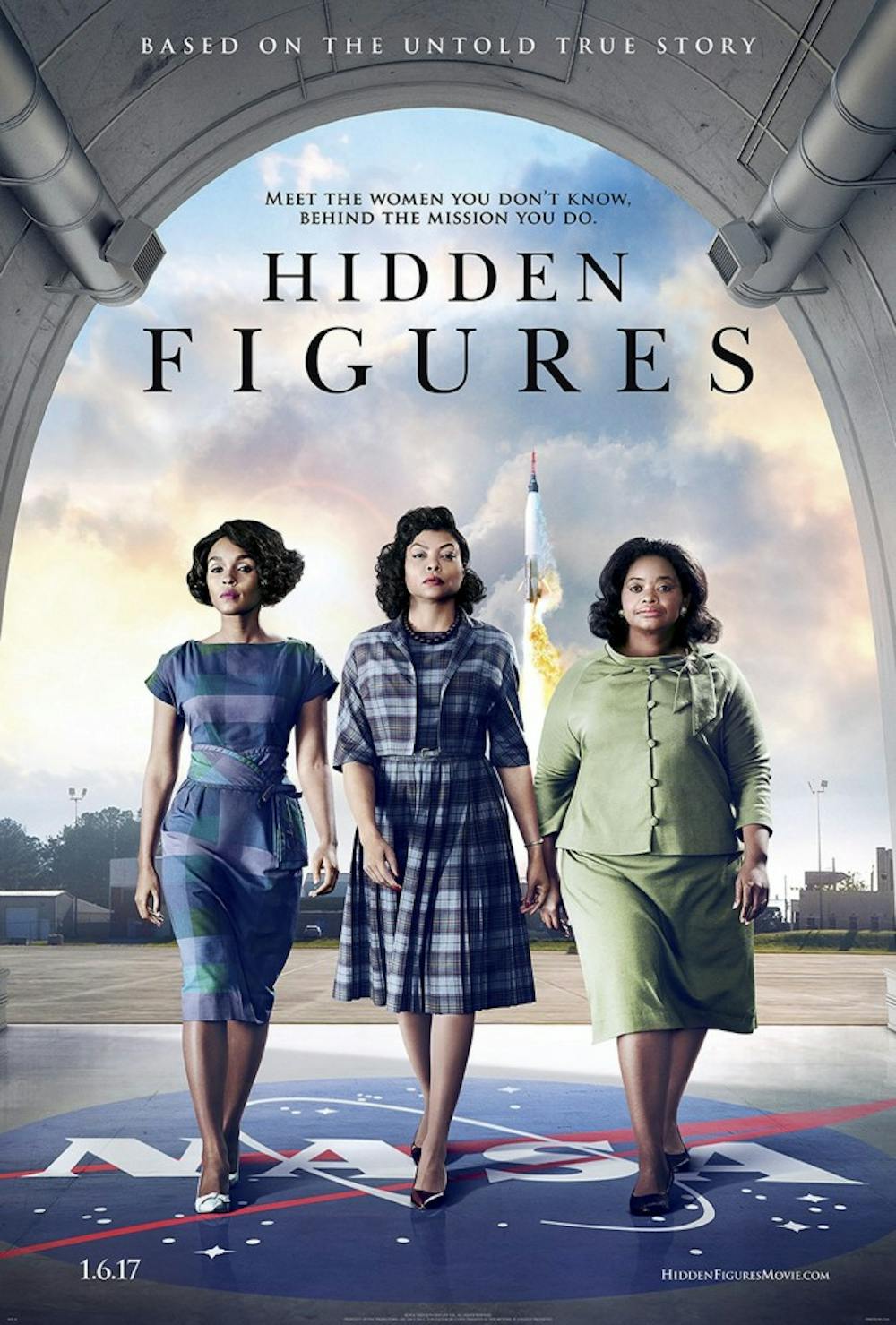“At NASA, we all pee the same color!” Kevin Costner’s character, Al Harrison, exclaims as he forcibly removes a “Colored Women” sign hung above a bathroom at NASA.
If only destroying racial barriers were so easy.
Tuesday night, Nickelodeon Theater hosted a showing of “Hidden Figures” as part of their ongoing series “Juriscinema: The Law on Screen.” Each showing in the series highlights topics within the judicial system and is followed by a conversation between the audience and local legal experts. Theater director Allison Kozberg created the series in hopes to create a public sphere for important conversation through a common interest in film.
"My hope is that through the series we can create a foundation to create opportunities for civil engagement so that the law can be a tool to make people more powerful instead of a barrier that makes people feel disempowered,” Kozberg said.
Tuesday’s session explored discrimination in the workforce, and no recent film seems to capture this unfortunate experience more than 2016’s “Hidden Figures”.
"By showing the film first, we are able to create a language for a conversation about the law," Kozberg said.
Both a critical and commercial success, "Hidden Figures" tells the unsung story of three African-American female mathematicians at NASA and their vital contributions to the Space Race of the 1960’s. Despite their job qualifications, Katherine G. Johnson (Taraji P. Henson), Dorothy Vaughan (Octavia Spencer) and Mary Jackson (Janelle Monáe) experienced both racial and gender discrimination daily through forms such as segregated bathrooms, unequal pay and refusal to promote.
Though the "Hidden Figures" ends on a rather happy note, the talkback after revealed that while discrimination in the workforce is not as blatant, that doesn’t mean that it has entirely disappeared.
After the viewing, lawyers Nekki Shutt and Joseph D. Dickey led a conversation where they answered questions from the audience, shared their insight into the Midlands’ current legal atmosphere, and even took attendees through the steps filing a discrimination claim.
When asked what’s the most common form of discrimination they see in their offices today, both lawyers agreed that sexual harassment and the emergence of gender identity discrimination is a big issue.
For Columbia lawyer Joseph D. Dickey, the conversation was much bigger than himself.
“What I hoped they gained is how representation matters," Dickey said. "My mom is 65 years old and she didn’t even know about this story until this movie came out, so I think it’s important for there to be equal representation and a legitimate equal opportunity for everyone, not just on paper."
In addition to Dickey, Columbia resident Dorothy Tudor carries her own personal history with the film. After graduating from the College of William and Mary with a degree in mathematics in 1966, Tudor worked at NASA as math aid and personally knew engineer Mary Jackson.
“I went there in ’66 and Mary at that point was an engineer. I didn’t know the story that she had to go through to become an engineer ... until I read the book," she recalled.
While she never worked on an assignment with Jackson, Tudor remembers Jackson as an activist for the education of women, a mentor and a smart woman that “had a wonderful sense of humor."
“It was fun time to work at NASA," Tudor said. "We were there for the moon landing, but then when Johnson became President, they moved it all to Texas."
Overall, the night was both fun and engaging for those in attendance, just as the organizers intended.
"I think that we’re really invested as an organization in ... really creating opportunities for people to feel empowered to both participate in conversation and engage as a resident, as a citizen, as a person of Columbia,” Kozberg stated.
Though the series is connected by the common thread of legal films and the conversations surrounding them, the Nick has been able to find films that range widely in genre and style.
These include classics like "To Kill a Mockingbird" and a documentary that delves into mass incarceration in the United States.
“I’m thrilled to show contemporary cinema like this with such emotional residence and I’m also really happy we’re going to have the opportunity to show classics on cinema," Kozberg said.
The next film in the series, “12 Angry Men,” features a conversation about jury selection and bias led by the Richland County Bar Association and will be held Oct. 2 at 6:30 p.m.

